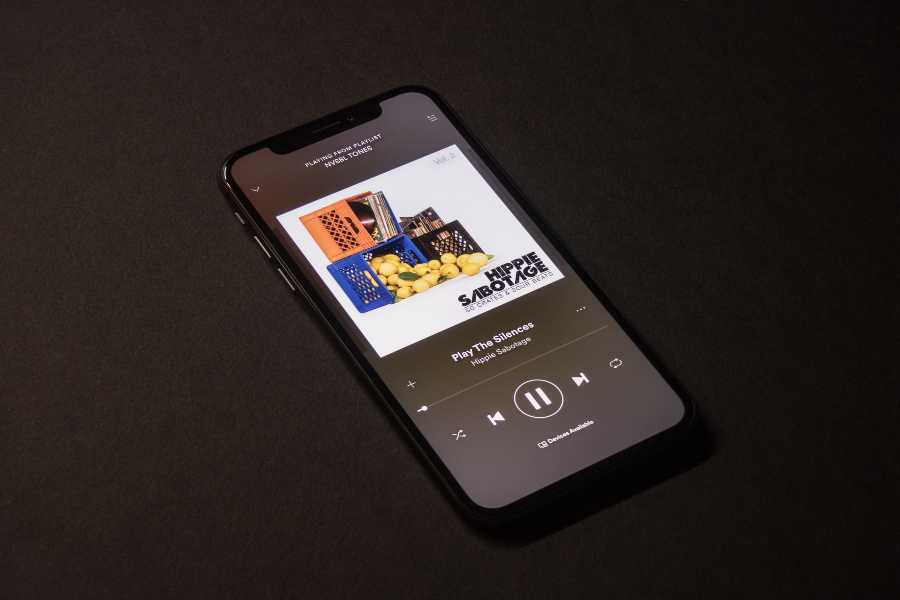From rap to rock, songs with curse words have become commonplace in the music industry. But why do people love them so much? It may have something to do with our psychology. Curse words can be seen as a form of rebellion against societal norms, which could be why they often appeal to younger generations. Additionally, they can add a certain intensity to a song, making it more memorable and influential. Curse words can also express strong emotions, making them more relatable and easier to connect to. To get a better understanding of why people love songs with curse words, let’s explore the psychology behind them.
Why Do People Love Songs With Curse Words?
People love songs with curse words because they find the words to be edgy, powerful, and liberating. Cursing in songs can help people express themselves more honestly and openly, and it can be used as a form of self-expression. The use of curse words can also add an element of shock or surprise to a song, making it stand out from other songs. Lastly, some people may find the use of curse words in songs to be funny or entertaining.
What Are Curse Words?
Curse words are words that are generally considered offensive or vulgar. Curse words often express strong emotions, such as annoyance, frustration, anger, or sadness. They can also be used to add intensity to a statement or to insult someone. Curse words are generally considered inappropriate in many social settings, such as the workplace or around children. Although curse words are often considered offensive and taboo, they are used frequently in everyday conversation, especially in languages like English, Spanish, or French. In the music industry, curse words are often used in lyrics, either by using the actual word or by using a creative euphemism. The use of curse words in lyrics is referred to as cursing, dropping f-bombs, or using expletives.
The Psychology Of Why People Love Songs With Curse Words
- Cursing in songs can be empowering. For many, it can provide a way to express emotions that words alone cannot capture. It can be an act of defiance against societal expectations or a way to release built-up feelings. Cursing in songs can also be a great way to build camaraderie with others who identify with the same struggles.
- Cursing in songs can be cathartic. For some, curse words provide an outlet to express their frustrations and anger. It can be a way to let out emotions that are usually kept hidden or bottled up inside.
- Cursing in songs can offer a sense of liberation. The use of curse words in songs can help people feel more liberated and free from the constraints of society and its expectations. People may find it liberating to break away from social norms and expectations, even if just temporarily.
- Cursing in songs can add shock value or surprise. The use of curse words in songs can add an element of shock or surprise, making them stand out from the crowd and gaining the attention of listeners
- Cursing in songs can be humorous or entertaining for some people. People may find the use of curse words in music humorous or entertaining, as it can often break the tension or lighten the mood with a bit of comedy relief.
- Cursing in songs can be a way to express identity or a sense of belonging. For some people, the use of curse words in music may be a way to express their identity or feel like they belong to a certain group or culture.
- Cursing in songs may have an effect on language development. The use of curse words in music may have an effect on language development, as some people may become more comfortable using them in everyday conversations after hearing them used frequently in songs.
- Cursing in songs can be seen as an act of rebellion and defiance against the status quo. The use of curse words can be seen as an act of rebellion and defiance against the status quo, especially when used by artists who challenge societal norms and expectations.
- Cursing in songs can be seen as a form of self-expression or creativity. For some people, using curse words in music is a form of self-expression or creativity, as they are able to express themselves in ways that they wouldn’t normally be able to do in everyday conversations.
- Cursing in songs can be seen as an act of protest or resistance. The use of curse words in music can be seen as an act of protest or resistance against oppressive systems and structures, as artists are able to express their anger and frustration with the world around them.
Rebellion Against Societal Norms
- Rebellion is a form of protest against the status quo, often expressed through acts of civil disobedience.
- Rebellion can be used to challenge oppressive systems, laws, or customs that limit individual freedom.
- Rebellious behavior is often seen as a way to empower oneself and stand up for what one believes in.
- Rebellious acts are not always violent or destructive; they can range from nonviolent protests and civil disobedience to more extreme measures such as sabotage and terrorism.
- Rebellion can be an effective way to bring attention to an issue or injustice, and it can lead to social change if enough people support it.
- Rebellious behavior carries risks, including arrest, imprisonment, and even death in some cases.
- Rebellion can be motivated by many factors, including a sense of injustice or oppression, a desire for freedom or self-expression, or simply boredom with the status quo.
- Rebelliousness is often associated with youth, but it can be found in people of all ages.
- Rebellion can take many forms, including art, music, writing, activism, and protest.
- Rebellion against societal norms is an important part of keeping societies dynamic and open to change.
Why Are Younger Generations Drawn To Curse Words?
- Curse words are seen as edgy and rebellious, which appeals to younger generations who are often searching for ways to express themselves.
- Curse words can add intensity to a song, making it more memorable and relatable.
- Curse words can be used to express strong emotions in a more direct and honest way than other forms of expression.
- Curse words can be used for comedic effect, allowing people to make light of difficult topics or situations.
- Curse words can be used as a form of catharsis, providing an outlet for people’s frustrations and anger.
- Curse words are often seen as taboo or forbidden, which may add an element of excitement or thrill for some people.
- Curse words can be used to shock people out of complacency, encouraging them to challenge the status quo or take action on important issues.
- Curse words may help young people feel connected to their peers, as they are often used in popular culture and music.
- Curse words can be used to make a statement or stand out from the crowd, as many people are uncomfortable with them and may avoid using them.
- Curse words may help young people feel powerful or in control, as they can be used to express emotions that may otherwise be difficult to articulate.
Conclusion
From rap to rock, songs with curse words have become commonplace in the music industry. But why do people love them so much? It may have something to do with our psychology. Curse words are words that are generally considered offensive or vulgar. They are often used to express strong emotions, such as anger, frustration, or sadness. They can also be used to add intensity to a statement or to insult someone. Curse words are generally considered inappropriate in many social settings, such as the workplace or around children.




















Leave a Reply